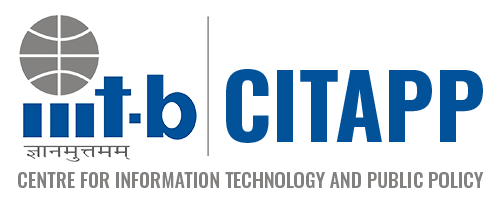2017
PIs: Preeti Mudliar
Funding agency: IIITB Faculty Start up Grant
Publications:
- Preeti Mudliar. Biographies of Biometric Devices: The POS Machine at Work in India’s PDS. Proceedings of the ACM Conference on Human Factors in Computing Systems (CHI’2021) May 8 – 13, 2021, Yokohama, Japan. [PDF]
- Preeti Mudliar. Whither Humane-Computer Interaction? Adult and Child Value Conflicts in the Biometric Fingerprinting for Food. Proceedings of the ACM Conference on Human Factors in Computing Systems (CHI’2020) April 25-30, 2020, Honolulu, Hawai’i, USA. [PDF]
- Preeti Mudliar. Broken Data: Repairs in the Production of Biometric Bodies. In Lives of Data: Essays on Computational Cultures from India. (Ed. Sandeep Mertia). Institute of Network Cultures, Amsterdam. [PDF}
- Breakdowns and Repairs in Aadhaar-linked Public Distribution Systems–Learnings from Rajasthan. Presented at the 2018 International Tech4Dev Conference, UNESCO Chair in Technologies for Development: Voices of the Global South, Lausanne, Switzerland. 27-29 June.
- Broken Data. Paper presented at ‘Lives of Data’. Workshop organized by Sarai-CSDS, New Delhi, (January 5-7, 2017). Audio recordings of the presentations are available here.
- Invited talk at the BIT-ACT monthly seminar series hosted by the Department of Political and Social Sciences, University of Bologna, Italy, on ‘Biometric Designs for Increasing Inclusion and Decreasing Corruption: Lessons from India’s Food Security System’. Details here.
- Preeti Mudliar. 2020. ‘In Mangal’s New World.’ In 2040 – Utopias for a Digital Society. Publisher: Alexander Humboldt Institute for Internet and Society, Berlin, Germany. (HIIG) The digital book is available for reading here.
- A recording of the public Q&A session on the story with HIIG’s Bronwen Deacon is available for viewing on YouTube here and on Facebook here.
